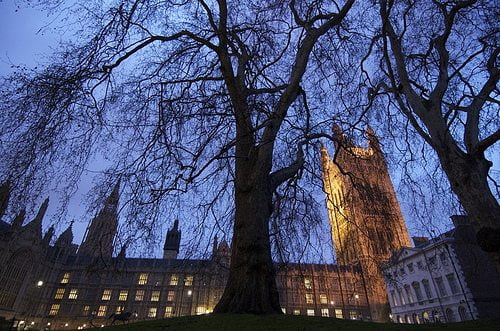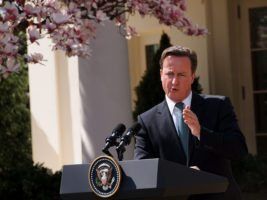

Features
English Votes for English Laws (#EVEL): Electoral Reform Society & Citizens’ Assemblies
Katie Ghose, Chief Executive of the Electoral Reform Society, said today: “The introduction of English Votes for English Laws would be a highly significant change, not just to voting procedure but to the future of the relationship with devolved nations and UK democracy. These proposals have constitutional consequences beyond changes to parliamentary procedure – so it’s vital that citizens have a say.”
The complex and often divisive nature of the many constitutional challenges facing the UK demand that innovative approaches are taken that can create new ways of dealing with difficult questions.
Ghose added: “This significant change should be considered alongside other constitutional issues, with the input of the UK public as part of a citizen-led constitutional convention. We can’t leave it to ‘great and the good’ alone to decide on Britain’s constitutional future. So far, citizens’ engagement in the EVEL and devolution debates has been limited – but the appetite is there.”
The Electoral Reform Society is demonstrating how that can be achieved with a live experiment happening right now.
Involving Citizens
We need to open up the debate on devolution to involve citizens in the process alongside politicians.
Ghose explained Citizens’ Assemblies: “Leading academics in conjunction with the Electoral Reform Society have just this week launched an important new democratic initiative to help deal with these profound constitutional changes – ‘Citizens’ Assemblies’ in Sheffield and Southampton on where power should lie locally.”
The ‘Democracy Matters’ Citizens’ Assemblies project is the first of its kind, involving citizens in the hugely significant constitutional questions the country now faces. The scale and remit of the Assemblies have not been seen in the UK before. Held in Sheffield and the Solent region over the next two months, the Assemblies are drawing on cutting edge research into democratic theory and practice and giving English citizens the first chance to have their say on England’s constitutional future.
The public want to shape the devolution process and ERS passionately believes in giving citizens that voice.
‘Democracy Matters’ Citizens’ Assemblies – www.citizensassembly.co.uk
The ‘Democracy Matters’ project involves two pilot Citizens’ Assemblies: one in the Solent region (AssemblySouth) and another running concurrently in Sheffield (AssemblyNorth). The first part of AssemblyNorth was launched at the weekend. Enthused and engaged local residents from across South Yorkshire learned about a range of devolution options for their area and began to reflect on their priorities.
The Assemblies will see local participants develop their knowledge and consult with experts and lobbyists on key constitutional questions. They will then deliberate and decide amongst themselves on the various options on the table with the opportunity also to design their own solution.
One Assembly will include politicians (AssemblySouth) as Assembly members, and another will not (AssemblyNorth). This will enable us to explore the best ways of citizens and politicians working together to build a better democracy, locally and nationally. This ESRC funded project has been developed with a huge range of academic expertise and is supported by many leading universities and campaigners.
A UK-wide Constitutional Convention is a chance to create a democratic solution to the many urgent and often divisive constitutional questions that the UK faces today. Citizens’ Assemblies have been held in Ireland, Canada and Iceland but the UK needs its own home-grown Convention capable of tackling the complex constitutional issues following from the Scottish Independence Referendum. These pilots provide many practical lessons for how to involve citizens in ongoing debates about devolution and decentralization.
Ghose concluded: “Citizen involvement is crucial for public confidence and the sustainability of Britain’s constitution. It’s time to take the debate outside of Westminster.”
ERS kindly contributed an article to our Guide to Sustainable Democracy earlier this year.


 Environment12 months ago
Environment12 months agoAre Polymer Banknotes: an Eco-Friendly Trend or a Groundswell?

 Features11 months ago
Features11 months agoEco-Friendly Cryptocurrencies: Sustainable Investment Choices

 Features12 months ago
Features12 months agoEco-Friendly Crypto Traders Must Find the Right Exchange

 Energy11 months ago
Energy11 months agoThe Growing Role of Solar Panels in Ireland’s Energy Future




























